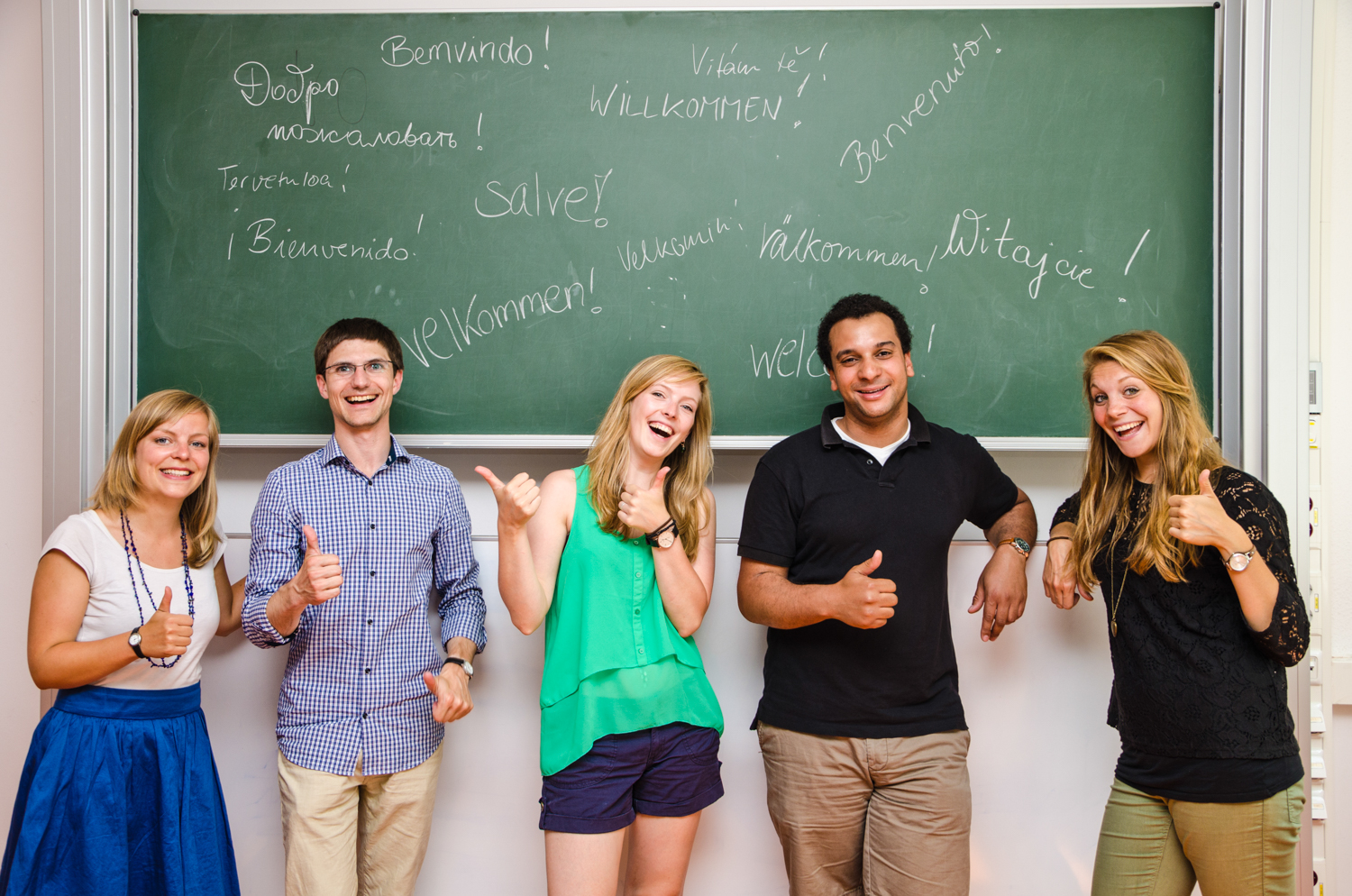The subsidiary subject is aimed at students training to become teachers of history, geography or art and design, who are interested in learning how to teach their subjects bilingually. Whilst studying the subsidiary subject, the students consolidate their subject-specific language skills and acquire the ability to take part in the academic discourse of their subject area in English. Moreover, bilingual teaching also provides culture-specific perspectives for contents specific to the subject area. In this additional qualification, students get to know the various dimensions of intercultural learning for content subjects and gain the ability to systematically support the pupils’ linguistic and methodological skills.
‘This study offer is unique to Germany. Several universities provide courses that lead to a certificate, but have a much more limited scope and are often significantly dominated by the languages. The subsidiary subject at our University is based around the specific subject areas that provide modules taught in English and classes that have been conceived together with the Language Centre and the English Department to provide a demanding and practical teaching programme,’ explains Dr. Margitta Kuty, responsible for the teaching of English at the Department of British and North American Studies.
‘The bilingual training of teachers enables future teachers to teach and learn individual subjects such as geography, art, or history in English. This will give them an important advantage in the globalised world,’ says the University of Greifswald’s Pro-Rector for Studies and Teaching, Prof. Dr. Steffen Fleßa.
Maria-Friederike Schulze, an artistic member of staff and responsible for the teaching of art, adds: ‘For example, due to their nature, art lessons are vivid and action-based and they stimulate pupils, whilst also having a visual, intercultural and communicative character. These are the best prerequisites for purposeful and motivating bilingual teaching and learning settings. In particular, additional workshop practicals with artists from English-speaking countries will be a wonderful supplement for all student teachers doing the bilingual teaching course in art and design. Thanks to authentic intercultural encounters and the joint artistic work, students will profit from a sustainable broadening of their horizons at linguistic, artistic and personal levels.’
Contacts at the University of Greifswald
Dr. Margitta Kuty
Department of British and North American Studies
Ernst-Lohmeyer-Platz 3, 17489 Greifswald
Tel.: +49 3834 420 3360
kutyuni-greifswaldde
Lena Stippl
Internationalisation of Teaching Degrees
Projekt interStudies_2
Domstraße 58 A, 17489 Greifswald
Tel.: +49 3834 420 1267
lena.stippluni-greifswaldde
www.uni-greifswald.de/en/current-news

